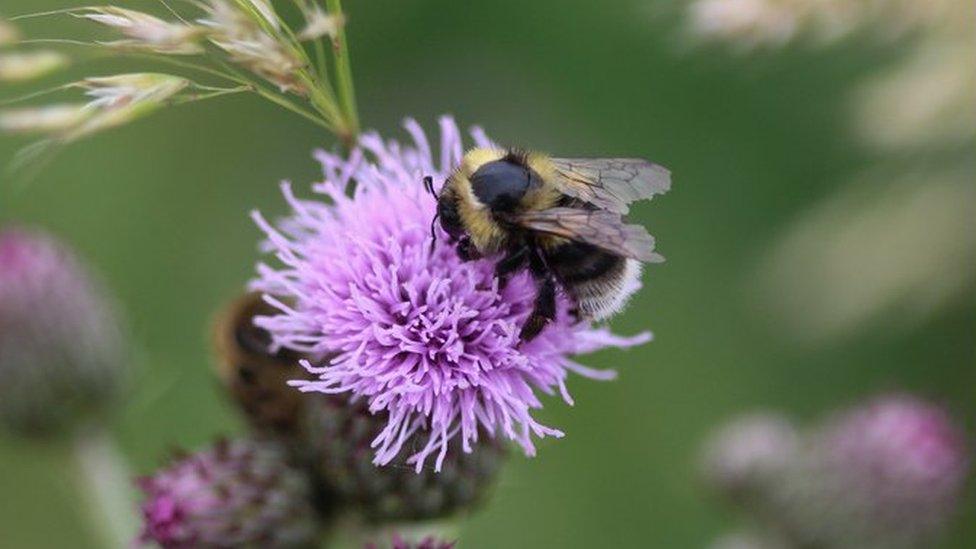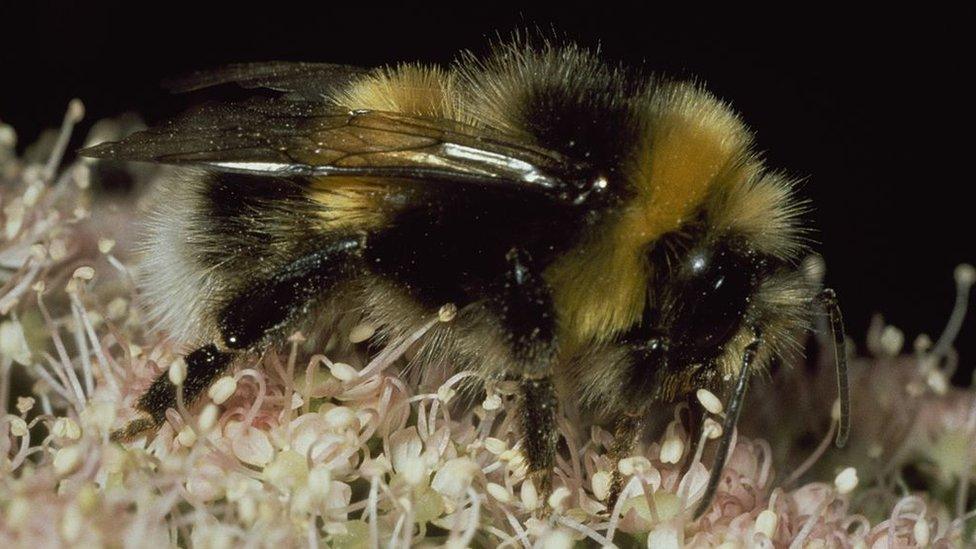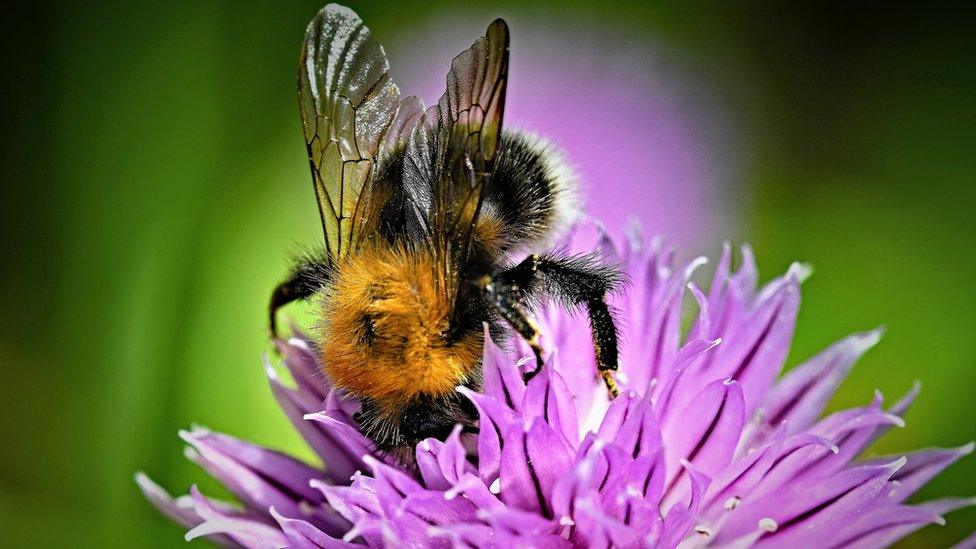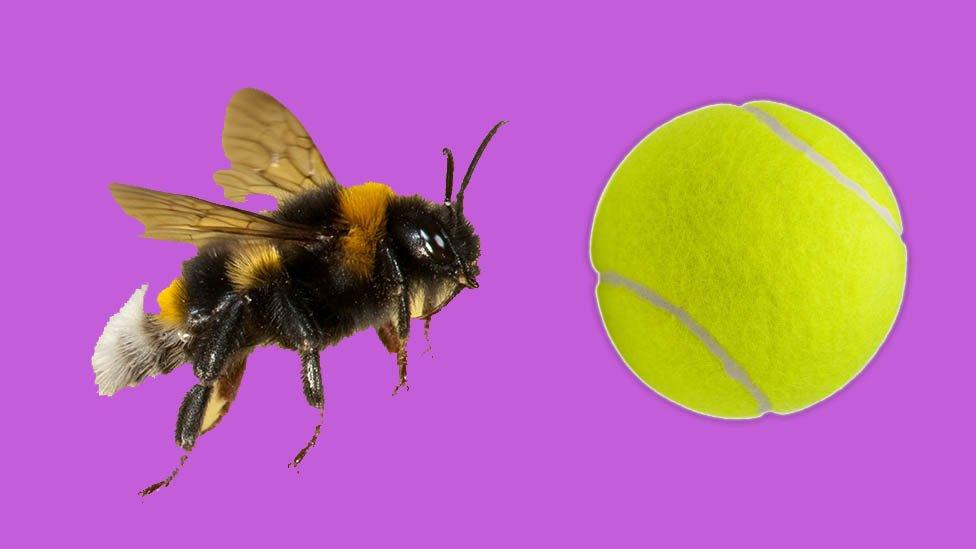Bumblebees: UK conservation project helps rare shrill carder bees
- Published
- comments

The shrill carder bee is named after its high-pitched buzz
One of the UK's rarest bumblebees - the shrill carder bee - has seen its population grow thanks to a conservation project in the south east of England.
In fact, the restoration project in Kent has been so successful that it's been awarded "champion status".
The shrill carder bee, named after its high pitched buzz, has just five populations remaining across England and Wales.
Like many bees, it has seen a big decline in numbers in recent decades, with the loss of habitat a key threat to the insect.
What's happened?
WATCH: Why are bees so important?
Conservation work carried out at the Woodland Trust's Victory Wood site near Whitstable in Kent, has seen former farmland transformed into a mixture of woodland, scrub and grassland.
Four years ago, much to the surprise of conservationists, the rare shrill carder bee was discovered there. So the charity teamed up with the Bumblebee Conservation Trust and recruited volunteers to help boost the species.

Like many bees, the carder shrill bee has seen a big decline in numbers in recent decades
The teams provided forage and nesting sites for the bee, which needs flower-rich habitats for its food, nests and hibernation.
Volunteers were also given training to help identify the bees, and surveys show the population has now increased - with as many as 121 shrill carder bees recorded on one day!
The Bumblebee Conservation Trust has now announced that Victory Wood is a "champion site" for the shrill carder bees, celebrating the important work that has been carried out to help the rare bumblebee.
A third of the world's food production depends on bees.
Bees pollinate three quarters of the world's main crops including apples, beans, tomatoes and strawberries!
Dr Hazel Jackson, from the Woodland Trust, said: "It's a real conservation success story and a great example of nature recovery.
"It really does show how restoring nature to a site can boost biodiversity and aid our fight against climate change."
Daisy Headley from the Bumblebee Conservation Trust added: "Hard work like this deserves to be recognised and we hope that other sites can look to Victory Wood for inspiration."
- Published22 May 2020

- Published30 October 2022

- Published19 May 2020

